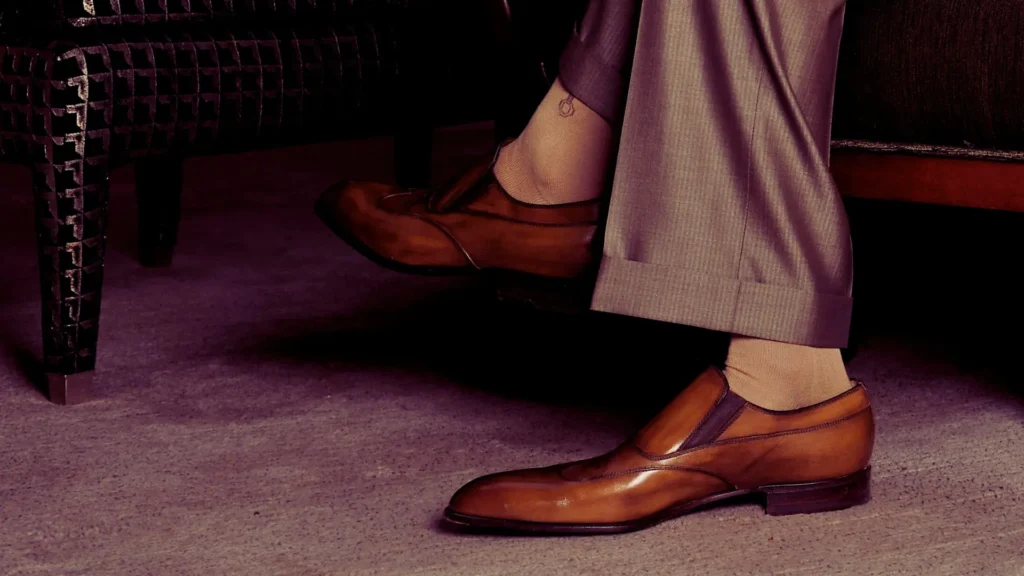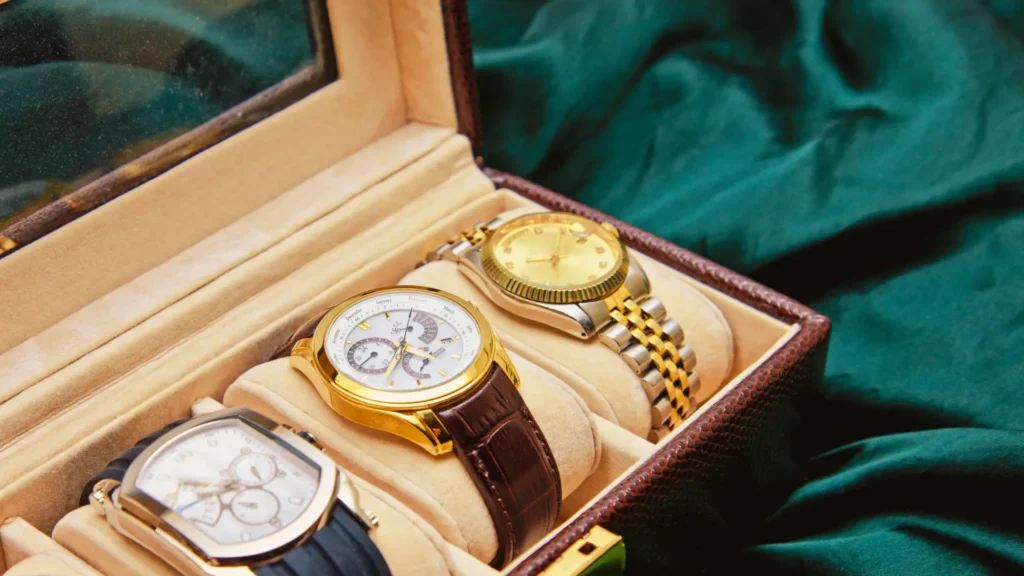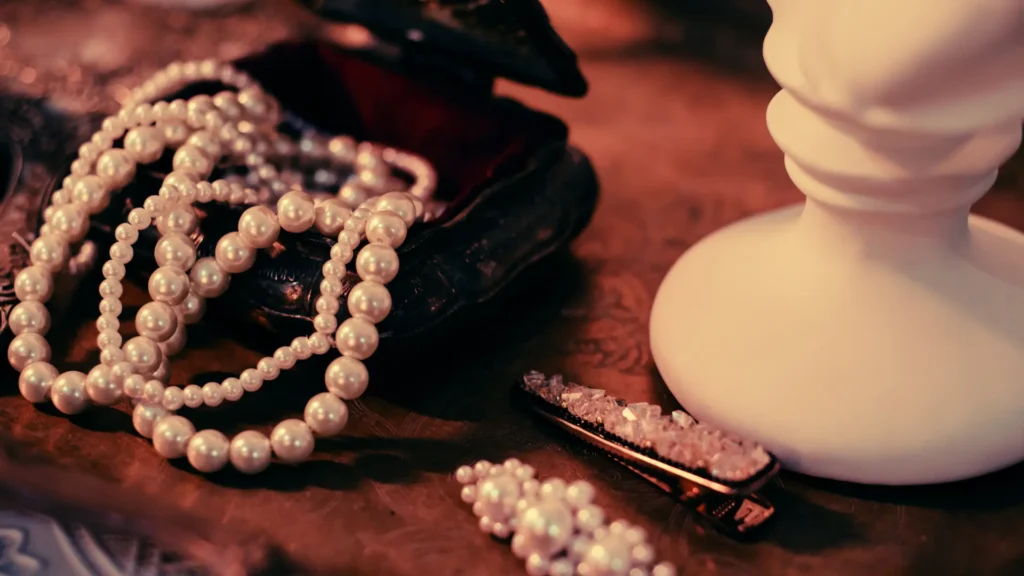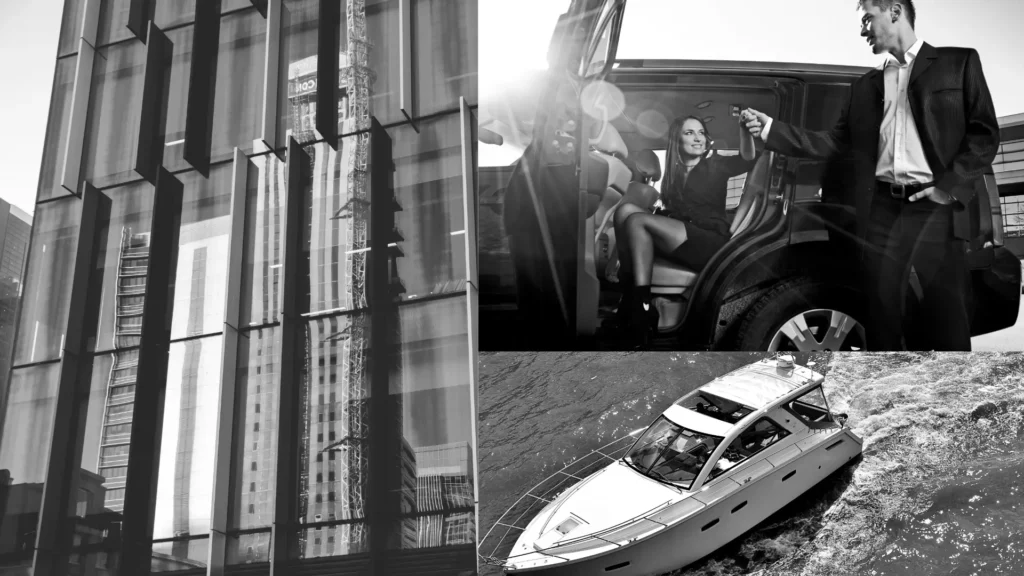How to React if Somebody Insults You — The Ellavore Way
“Elegance is not about avoiding storms, but dancing gracefully through them.”

1️ First Rule: Stay Unmoved
When someone insults you, your first natural reaction is anger or defence.
But an elegant person? They remain still.
- Facial expression: Neutral or a subtle, knowing smile. You can practice in a mirror until it feels natural. A slight tilt of the head adds intrigue. “Darling, you’ve amused me, but you haven’t touched me.”
- Body language: Upright posture, relaxed shoulders, hands calm. Eye contact: Break their script by holding eye contact just half a second longer than expected.
- Breathing: Slow and deep. Inhale for 4 counts, exhale for 6. Fun fact: This triggers the parasympathetic nervous system, keeping you cool.
Now, why does this work?
Insults thrive on drama. Deny them the spectacle, and the insult withers like an unwatered houseplant. “The best revenge is massive success.” But before success? Silence.
You refuse to play their game. Insults crave chaos; your stillness starves them.
It’s psychologically disarming. Most expect a reaction from you, but your poise flips the dynamics.
I once watched a woman respond to “That dress is… bold” (read: shady) with a slow sip of champagne and, “Thank you. I adore pieces that spark… conversations.” The insulter flushed. Game over.
“Silence is sometimes the loudest statement of power.”
By not reacting emotionally, you show you’re above petty attacks.
“An insult is like a poorly wrapped gift; it says more about the giver than the receiver.”
(And darling, we only accept presents in Tiffany blue.)


2. The Art of the Graceful Deflection
Silence is powerful, but there are moments when a subtle verbal feint leaves the insulter stumbling over their own pettiness. Now, Deflection doesn’t mean you are arguing/fighting back, it’s about redirecting the energy with the precision of a fencing master.
Your Tools for Tactful Redirection:
The Compliment Twist:
“You always have such… unique opinions!” (Translation: “Your negativity is noted, but not needed.”)
Example: When met with “You’re so extra,” try, “I’ve always believed ‘extra’ is just another word for ‘memorable.’”
The Curious Question:
“What an interesting thing to say. What made you think of that?”
(Watch them fumble to justify their rudeness—most won’t.)
The Playful Dismissal:
“Oh, bless your heart.”
“Oh, Thanks!”
(Southern elegance meets lethal politeness.)
Why This Works:
Deflection forces the other person to either double down (revealing their insecurity) or retreat. You remain untouched, like a Grecian statue in a hailstorm.
A dear friend once handled “You’re not like other girls” with a laugh and, “Darling, ‘other girls’ are the reason civilization exists.” Man, that girl was something!
Ask Yourself:
“Do I owe a response to every arrow shot my way, or can I let some clatter harmlessly at my feet?”

3. The Disarmingly Polite Smackdown
There will come a moment when deflection feels too generous, and silence too passive. Enter the coup de grâce of elegance: the response that’s so exquisitely polite, the insulter only realizes they’ve been sliced hours later, mid-shower.
Your Arsenal of Artful Precision:
The “Oh?” Technique:
“Oh?” (Pause. Sip tea/whiskey/Perrier/Water) “How… specific of you to notice.”
(Example: “You’re aging so gracefully!” → “Oh? How kind of you to monitor my timeline.”)
The Mirror:
Reflect their words back with a tilt of the head. Apply this formula: “So you believe [Slowly tilt your head] and then [repeat insult]? Fascinating.”
(This technique just sounds so unique and classy! Do this and watch their reaction, it will be fun!)
The Exit Line:
“I’d never dream of keeping you from more… stimulating company.” (Glide away. Mwah.)
Why This Works:
Polite precision forces them to sit with their own rudeness while you float above it. As Oscar Wilde didn’t say but should have: “To wound me, you must first reach me, and darling, you’re barely on the staircase.”
At a gallery opening, a man scoffed at my friend’s abstract necklace: “My toddler could make that.” Her reply? “How marvellous! You must enroll them—immediately.” The crowd tittered; he excused himself.
Ask Yourself:
“Does this person deserve my wit, or just my absence?” (Not all battles are worth your ammunition.)

4 The Power of Calm Speech
If you choose to respond — respond calmly and precisely.
- Use a soft but firm tone as a handshake with a CEO. “I hear you” (but the subtext is “I am unmoved”).
- Use minimal words. Minimalism is power. “Noted.” “Fascinating.” “Oh?” (Let them fill the awkward silence.)
- Avoid sarcasm or aggression.
Example Response:
“I appreciate your opinion. But I don’t share the same view.” (Translation: “Your words are now archived in the Museum of Irrelevance.”)
or simply:
“Thank you for sharing. Let’s move on.” (Subtext: “This conversation is over—and so is your moment.”)
Short, unbothered — makes the insulter feel small.
Why This Works:
- They Expect Fireworks. You give them a still lake. Their insult drowns in it.
- Short = Dominant. Rambling justifies. A clipped reply dismisses.
- The Aftermath: They replay your calmness obsessively. “Why weren’t they rattled? Was I… insignificant?”
Ask Yourself:
“Do I want to ‘win’ this—or simply leave them stranded on an island of their own awkwardness?”
“The quieter you are, the louder your power echoes.”
(Especially when paired with a sip of tea and a gaze that says, ‘Try harder.’)

5 Control The Room: Classy Presence
True power whispers. It’s in the pulse of a pause, the weight of a glance—the unshakable certainty that you, darling, are the axis on which the room tilts. No shouting. No flailing. Just the quiet hum of “I am here”—and everyone else leaning in to catch it.
Your Nonverbal Command Manual:
The Eyes:
Hold gaze for 1.2 seconds past comfort. (Science says this sparks deference; history says it toppled empires.)
“I see you. I am not impressed.”
The Brow:
A single, languid lift. (Think: “How… quaint.”)
Optional: Paired with a micro-sip of your drink for lethal effect.
The Hands:
Your hand movement should be slow and natural. Sparse. Intentional.
Forbidden: Fidgeting, unless you’re toying with a signet ring like a villain in a noir film.
The Tempo:
Walk as if you’re wading through honey. Speak like each word costs $1,000.
Rushing is for people who fear they’re not worth waiting for.
Ellavore’s Field Observation:
At a Parisian salon, a woman silenced a raging critic by uncrossing her legs with glacial slowness, then murmuring, “Do continue.” He stammered. The room exhaled. Masterclass. Iconic.

Ask Yourself:
“When did I last make someone lean in without saying a word?”
“Commanding a room isn’t about volume. It’s about the gravity you generate.”
(And darling, you’re a black hole in every room you enter.)
You give a message:
“I am unshaken. You do not control my emotions.”

6 Use Humour (Optional, Advanced)
Sometimes, humour can neutralize an insult elegantly.
The Rules of Engagement:
- Never Punch Down (elegance is sharp, not cruel).
- Aim for the absurdity of the insult, not the insulter (think: fencing, not boxing).
- If in doubt, smirk and sip your drink (silence is a Swiss watch; bad humour is a whoopee cushion).
Examples from the Ellavore Vault:
Insult: “You’re too quiet for this group.”
Reply: “I let my silence make room for meaningful words.” (Bonus points if you glance at their empty cocktail glass.)
Insult: “That outfit is… brave.”
Reply: “Thank you! I do like to keep life interesting. (Pause.) You should try it sometime.”
Insult: “You’re not like other girls.”
Reply: “Astute observation. Other girls invented civilization—I’m just enjoying it.”
Why This Works:
Laughter disarms, but your poise rearms you with unshakable dignity.
They’re left wondering if they’ve been complimented or gutted (the sweet spot).
Cautionary Tale:
A guest at a Vienna ball once sneered at a woman’s pearls: “Real or fake?” She replied, “Are your teeth?” Legendary—but it did start a duel. Know your audience.
Ask Yourself:
“Is this joke for my amusement, or their education?” (The latter is always classier.)
“Wit should glisten, not draw blood.” (Unless they really deserve it, then aim for the aorta.)
But be very careful — humour should disarm, not humiliate.

7 The Silent Smile
One of Ellavore’s strongest weapons is The Smile.
In the arsenal of elegance, few weapons are as devastatingly simple as The Smile—not the frantic grin of a pleaser, but the slight, serene curve of a woman who’s already ten moves ahead.
Why It Works (Like Black Magic):
For You: A physiological power pose. (Science confirms: smiling lowers your stress hormones while scrambling theirs.)
For Them: A silent “Oh, darling—did you think that would work?” that vaporizes their leverage.
For the Room: A palpable energy shift. (Suddenly, they’re the one who looks unhinged.)
How to Execute:
The Mona Lisa: Lips relaxed, eyes ever-so-slightly crinkled. (Not a full tooth reveal—mystery is key.)
The Pause: Hold for 3 beats after their insult. Let it hover. Then smile.
The Exit: Glide away while maintaining it, leaving only the echo of your amusement.

Ellavore’s Field Notes:
A diplomat once told me how she disarmed a hostile journalist’s “Why are you so cold?” with a smile and, “Ice preserves what heat destroys.” The room applauded. The journalist? Recanted by dessert.
Ask Yourself:
“When did a smile last shield me like armor—or unsettle someone more than shouting could?”
Masterclass Challenge:
*Next time someone needles you, say nothing. Just smile + tilt your head 5 degrees. Note how fast they backpedal.*
Your Turn, Icon:
What’s your signature smile? The “I’m savoring your downfall” smirk? The “You’re a speck” serenity? Share—we’ll encode it in the Ellavore archives.
“Smile — not to please, but to declare your peace.”
(And watch their chaos dissolve against it like sugar in champagne.)

8 The Art of the Freeze-Out
Some creatures only learn through consequences. Enter the Freeze-Out: a masterclass in socially acceptable exile, where your indifference becomes their punishment. No drama. No fanfare. Just the silent ‘hum’ of you moving on while they marinate in irrelevance.
When to Deploy:
- The insulter is a repeat offender (bless their unoriginal soul).
- They mistake your grace for weakness (laughable).
- You’ve exhausted all other elegant options (darling, even saints have limits).
Execution (With Panache):
The Physical Freeze:
Stop initiating contact. If they speak, respond with “Mm.” or “Ah.” (The verbal equivalent of a museum placard: dry, factual, devoid of warmth).
At events? A nod so slight it could be a trick of the light, then pivot to literally anyone else.
The Digital Deep Freeze:
Their texts? Left on read (but only after 12 hours).
Social media? Engage with everyone but them. Let them watch your joy from the sidelines.
The Reputation Lockdown:
If others bring them up: “Oh, I prefer not to discuss them.” (Smile. Sip your drink. Watch curiosity ignite.).
Why It Works:
Humans crave attention, even negative. Deprive them, and they unravel, they get hurt.
You remain blameless (“I’m just busy living my best life!”), while their behavior is spotlighted.
As the saying goes: “The opposite of love isn’t hate—it’s indifference.” And indifference? It’s kryptonite to the insecure.
Ellavore’s Field Notes:
A society queen I know dealt with a serial backhanded-compliment giver by literally turning her back mid-sentence to admire a painting. The offender was so flustered that she spilled her wine. Poetic justice.
Ask Yourself:
“Does this person deserve another second of my headspace, or have I already over-decorated their ego?”
“Freezing someone out isn’t petty. It’s pruning for a healthier garden.”
(And darling, you’re a botanical masterpiece.)
Your ‘Calm Speech’ Cheat Sheet
(For Mirror Practice—Champagne Flute Optional)
- Pause. (Let their words hang like bad cologne.)
- Breathe. (Inhale: “I am a monument.” Exhale: “They are graffiti.”)
- Respond. Pick one:
“How… curious of you to say that.”
“I’ll consider that.” (Spoiler: You won’t.)
“Anyway—” (Then immediately change subject.)

9 Know When to Walk Away
There is a particular power in choosing not to engage, not out of fear, but because you’ve deemed the entire conversation unworthy of your energy. This is the art of the Elegant Exit: the ultimate mic drop for those who mistake your grace for passivity.
When to Use It:
- The insult is crude, repetitive, or deliberately malicious.
- The setting is toxic (e.g., a passive-aggressive dinner, a social media cesspool).
- You simply do not care to entertain foolishness today (or ever).
How to Execute Flawlessly:
The Vanishing Act:
“Excuse me, [pause] I just spotted someone far more interesting.” (Then glide away, leaving only mystery in your wake.)
The Time Master:
Glance at your watch (real or imaginary) and sigh. “Oh dear, I’ve just remembered I have better things to do.”
“I’d love to continue this fascinating chat, but I just remembered—[glances at wrist where no watch exists] I have a prior engagement with literally anyone else.” (Then pivot so swiftly, your silhouette blurs.)
The Decoy Distraction:
“Is that [insert celebrity name] over there?!” (They turn. You evaporate.)
The Polite Power Out:
Place your hand on your heart. Sigh wistfully. “You’ve given me so much to… process.” (Exit before they ask what.)
The Digital Disappearance:
For online trolls: “What a curious thing to say. Anyway!” (Then mute, block, and pour yourself a martini.)
Why This Works:
- Confuses them (“Wait, was that an insult or a compliment?”)
- Preserves your mystique (“She’s so busy with so many better people.”)
- Feels delicious (the real priority).
Walking away isn’t retreating, it’s reclaiming your peace. As the French say, “Je m’en fous” (I don’t give a damn), preferably while lighting a cigarette in a vintage holder.
A woman I admire once handled a relentless gossip with a serene, “You must be exhausted from all this analysis. I’ll leave you to it.” She then turned and left the room—legend has it the gossip’s mouth is still hanging open.
Historical Precedent:
In 18th-century Versailles, courtiers would faint to escape tedious conversations. Modern translation? “I’d die to stay, but my therapist says I must set boundaries.”

Ask Yourself:
“Does staying here honour me, or am I just feeding someone else’s drama?”
“Never waste your diamonds on someone who can’t tell them from glass.”
(Save your brilliance for those who deserve the sparkle.)
Final Flourish: The Ellavore Manifesto on Insults
Your worth is not up for debate. (If they can’t see it, that’s their failing, not yours.)
Elegance is armor. (A raised brow outlasts a raised voice.)
Sometimes, the last word is no word at all. (Let silence speak volumes.)
Now, Over to You:
Which of these tactics feels most like you? Have you ever disarmed an insult with sheer poise? Share your stories—we’ll toast to your victories.
(And remember: The world will try to dim your light. Wear your elegance like a crown—and let the petty scramble in your shadow.)
Elegance knows when not to waste energy.
- If the insult continues, simply excuse yourself.
- Walking away signals: “You are not worth my time.”
“Never argue with a fool. Observers may not know the difference.”

10 Internal Dialogue: Train Your Mind
After the moment has passed, remind yourself:
- “Their words do not define me.”
- “I own my dignity.”
- “Elegance is my armor.”
Over time, this becomes natural. You’ll rarely get emotionally triggered.
Summary Table: The Ellavore Response
| Situation | Ellavore Reaction |
| Insult you directly | Calm, neutral face |
| Personal attack | Short, composed reply |
| Continuous insults | Walk away gracefully |
| Public insult | Smile + eye contact |
| Subtle disrespect | Polite but firm reply |
| Ridicule in a group | Gentle humour or silence |
Final Quote:
“A gentleman’s or lady’s true strength lies in his ability to remain elegant even when others lose theirs.”
What’s the sassiest line you’ve ever wished you’d said? Let’s workshop it into Ellavore-worthy weaponry.







No Comments